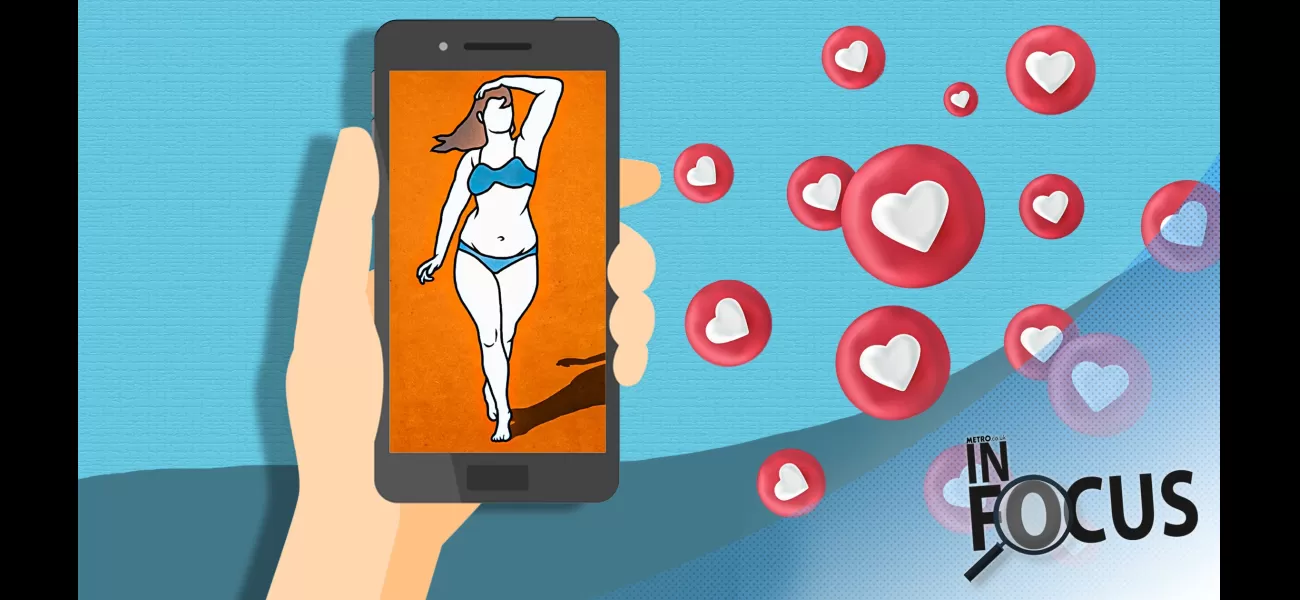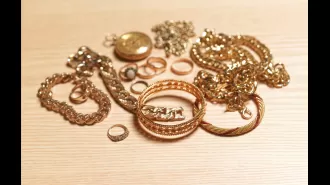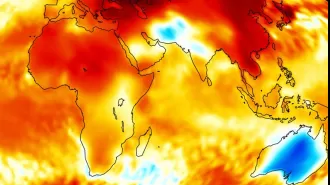AI-created influencers are poised to dominate social media, causing fear and concern about their impact.
The technology is rapidly improving and that's scary.
April 5th 2024.

Capturing the attention of 300,000 followers on Instagram is no easy feat, but for Aitana Lopez, it's just another day in the life. With her vibrant pink hair and flawless features, it's no wonder she has famous actors sliding into her DMs, eager to ask her out. But what many of her followers don't realize is that Aitana is not your average model. In fact, she's not even real.
Aitana is part of a new and unsettling trend of virtual influencers on social media, created using Artificial Intelligence (AI) technology. This technology has been evolving over decades, starting with the introduction of the world's first general purpose electronic computer in the 1940s. As computers have advanced, so has AI. However, one of the most notable changes is the development of image recognition software, which has now evolved into image generation technology, capable of creating online personalities like Aitana that are indistinguishable from real humans.
Creating these virtual influencers is surprisingly easy. All it takes is a physical description, which can be as basic as "blue eyes and a hot body," and some image editing software. Once created, these virtual models can be placed in any background or location. While this may seem like a relatively new development, AI influencers have already exploded in popularity in some parts of the world. It's predicted that the global virtual influencer market will be valued at a staggering £15 billion by 2028.
Sara McCorquodale, CEO and co-founder of CORQ, an influencer intelligence and trends forecasting service, explains that in places like South Korea, it's common to see AI influencers featured in social media campaigns. This is due to the cultural value of progression, which has made the concept of virtual influencers widely accepted. However, in the UK, where authenticity is still highly valued on social media, AI influencers have yet to fully infiltrate.
But that's not to say that we are completely immune to them. Some of our favorite brands, such as Pretty Little Thing and Marks & Spencer, have already used virtual models in their marketing. While PLT claimed that their virtual personas wouldn't replace real women, M&S received backlash and hasn't posted on their virtual model's account since 2022. But other brands have fully embraced this technology, using virtual influencers to replace real people and avoid any potential drama or delays.
The success of Aitana, who was created by The Clueless modeling agency, has led them to create a second AI influencer and promise more to come. The agency claims that the sexualized images of their virtual models are simply good marketing, stating that if they don't follow this aesthetic, brands won't be interested. However, this justification has done little to placate human influencers who are horrified by these accounts and the men behind them who profit off the sexualization of a female body.
US-based body positive influencer Danae Mercer Ricci, 36, has been vocal about her concerns, calling the trend "creepy." She worries about the impact of AI influencers on her daughter growing up in a world where virtual models are sexualized and even have accounts on platforms like OnlyFans. She believes that these virtual models perpetuate harmful beauty standards and that the creators are profiting off the idea of a woman, rather than a real person. It's a disturbing trend that raises ethical concerns and highlights the need for change in the way brands view and portray women.
Step into the dark world of AI influencers, a trend that is gaining popularity on social media. Meet Aitana Lopez, a virtual influencer with 300,000 followers on Instagram and a monthly income of up to £8,000 from her posts. She even has famous actors sliding into her DMs to ask her out. But what many of her followers may not realize is that Aitana is not your average model. In fact, she's not even a real person.
At just 25 years old, Aitana has become part of a disturbing new trend of virtual influencers created using Artificial Intelligence (AI). This technology has been advancing over the decades since the first general purpose electronic computer was introduced in the 1940s. As technology evolved, so did AI. However, one significant development has been the use of image recognition software, which has now evolved into image generation technology. This allows for the creation of online personalities like Aitana, who are virtually indistinguishable from real human beings.
Creating these virtual influencers is surprisingly easy. A physical description is often provided for what the person should look like via websites like Picsart.com. This description can be as simple as "blue eyes and a hot body." Once created, these virtual influencers can be placed in any background or location. Despite being a relatively new development, AI influencers have exploded in popularity in some parts of the world. In fact, the global virtual influencer market is expected to reach a staggering £15 billion by 2028.
According to Sara McCorquodale, CEO and co-founder of CORQ, an influencer intelligence and trend forecasting service, AI influencers are already heavily featured in social media campaigns in South Korea. However, they have yet to fully infiltrate UK shores, as it seems that Brits still value authenticity on social media.
But that's not to say that the UK is completely immune to AI influencers. Brands like Pretty Little Thing and Marks & Spencer have already started using virtual models in their campaigns. After facing backlash, Pretty Little Thing claimed that their virtual personas would not replace real women, and Marks & Spencer's virtual model, Mira, has not been active on social media since 2022. However, other brands are fully embracing this technology.
Aitana, created by The Clueless modeling agency, was designed to replace actual influencers that the agency had been working with, after experiencing difficulties with clients. According to Rubén Cruz, founder of the Barcelona-based agency, using virtual influencers allows them to avoid any drama that may arise with real-life influencers and potentially jeopardize projects. "We did it so that we could make a better living and not be dependent on other people who have egos, who have manias, or who just want to make a lot of money by posing," Cruz told euronews.com.
But there's a darker side to this trend. Along with her perfect selfies, Aitana's account also features more risque images. In fact, she even has her own page on Fanvue, a platform similar to OnlyFans, where subscribers can purchase images of her in lingerie. And she's not the only one. The Clueless has already created a second AI influencer and claims there are more to come. When asked about the sexualized images, the creators stated that it is simply good marketing. "If we don't follow this aesthetic, brands won't be interested. To change this system, you have to change the vision of the brands. The world in general is sexualized," they told euronews.
Unsurprisingly, this has caused outrage among human influencers, who are horrified by these accounts and the men behind them who are profiting off the sexualization of a female body. Danae Mercer Ricci, a US-based body positive influencer, has been vocal about her concerns, calling the trend "creepy." She worries about the impact this may have on her daughter growing up in a world with AI influencers. "A lot of these AI influencers now have accounts on sites like OnlyFans, and when you start to pick that apart, it's disgusting," she says. "Take Aitana, for instance. Here you have a man profiting off a woman who isn't even real. It's the idea of a woman, and he's deliberately taken her to a hypersexualized place to make even more money. I hate it."
Aitana is part of a new and unsettling trend of virtual influencers on social media, created using Artificial Intelligence (AI) technology. This technology has been evolving over decades, starting with the introduction of the world's first general purpose electronic computer in the 1940s. As computers have advanced, so has AI. However, one of the most notable changes is the development of image recognition software, which has now evolved into image generation technology, capable of creating online personalities like Aitana that are indistinguishable from real humans.
Creating these virtual influencers is surprisingly easy. All it takes is a physical description, which can be as basic as "blue eyes and a hot body," and some image editing software. Once created, these virtual models can be placed in any background or location. While this may seem like a relatively new development, AI influencers have already exploded in popularity in some parts of the world. It's predicted that the global virtual influencer market will be valued at a staggering £15 billion by 2028.
Sara McCorquodale, CEO and co-founder of CORQ, an influencer intelligence and trends forecasting service, explains that in places like South Korea, it's common to see AI influencers featured in social media campaigns. This is due to the cultural value of progression, which has made the concept of virtual influencers widely accepted. However, in the UK, where authenticity is still highly valued on social media, AI influencers have yet to fully infiltrate.
But that's not to say that we are completely immune to them. Some of our favorite brands, such as Pretty Little Thing and Marks & Spencer, have already used virtual models in their marketing. While PLT claimed that their virtual personas wouldn't replace real women, M&S received backlash and hasn't posted on their virtual model's account since 2022. But other brands have fully embraced this technology, using virtual influencers to replace real people and avoid any potential drama or delays.
The success of Aitana, who was created by The Clueless modeling agency, has led them to create a second AI influencer and promise more to come. The agency claims that the sexualized images of their virtual models are simply good marketing, stating that if they don't follow this aesthetic, brands won't be interested. However, this justification has done little to placate human influencers who are horrified by these accounts and the men behind them who profit off the sexualization of a female body.
US-based body positive influencer Danae Mercer Ricci, 36, has been vocal about her concerns, calling the trend "creepy." She worries about the impact of AI influencers on her daughter growing up in a world where virtual models are sexualized and even have accounts on platforms like OnlyFans. She believes that these virtual models perpetuate harmful beauty standards and that the creators are profiting off the idea of a woman, rather than a real person. It's a disturbing trend that raises ethical concerns and highlights the need for change in the way brands view and portray women.
Step into the dark world of AI influencers, a trend that is gaining popularity on social media. Meet Aitana Lopez, a virtual influencer with 300,000 followers on Instagram and a monthly income of up to £8,000 from her posts. She even has famous actors sliding into her DMs to ask her out. But what many of her followers may not realize is that Aitana is not your average model. In fact, she's not even a real person.
At just 25 years old, Aitana has become part of a disturbing new trend of virtual influencers created using Artificial Intelligence (AI). This technology has been advancing over the decades since the first general purpose electronic computer was introduced in the 1940s. As technology evolved, so did AI. However, one significant development has been the use of image recognition software, which has now evolved into image generation technology. This allows for the creation of online personalities like Aitana, who are virtually indistinguishable from real human beings.
Creating these virtual influencers is surprisingly easy. A physical description is often provided for what the person should look like via websites like Picsart.com. This description can be as simple as "blue eyes and a hot body." Once created, these virtual influencers can be placed in any background or location. Despite being a relatively new development, AI influencers have exploded in popularity in some parts of the world. In fact, the global virtual influencer market is expected to reach a staggering £15 billion by 2028.
According to Sara McCorquodale, CEO and co-founder of CORQ, an influencer intelligence and trend forecasting service, AI influencers are already heavily featured in social media campaigns in South Korea. However, they have yet to fully infiltrate UK shores, as it seems that Brits still value authenticity on social media.
But that's not to say that the UK is completely immune to AI influencers. Brands like Pretty Little Thing and Marks & Spencer have already started using virtual models in their campaigns. After facing backlash, Pretty Little Thing claimed that their virtual personas would not replace real women, and Marks & Spencer's virtual model, Mira, has not been active on social media since 2022. However, other brands are fully embracing this technology.
Aitana, created by The Clueless modeling agency, was designed to replace actual influencers that the agency had been working with, after experiencing difficulties with clients. According to Rubén Cruz, founder of the Barcelona-based agency, using virtual influencers allows them to avoid any drama that may arise with real-life influencers and potentially jeopardize projects. "We did it so that we could make a better living and not be dependent on other people who have egos, who have manias, or who just want to make a lot of money by posing," Cruz told euronews.com.
But there's a darker side to this trend. Along with her perfect selfies, Aitana's account also features more risque images. In fact, she even has her own page on Fanvue, a platform similar to OnlyFans, where subscribers can purchase images of her in lingerie. And she's not the only one. The Clueless has already created a second AI influencer and claims there are more to come. When asked about the sexualized images, the creators stated that it is simply good marketing. "If we don't follow this aesthetic, brands won't be interested. To change this system, you have to change the vision of the brands. The world in general is sexualized," they told euronews.
Unsurprisingly, this has caused outrage among human influencers, who are horrified by these accounts and the men behind them who are profiting off the sexualization of a female body. Danae Mercer Ricci, a US-based body positive influencer, has been vocal about her concerns, calling the trend "creepy." She worries about the impact this may have on her daughter growing up in a world with AI influencers. "A lot of these AI influencers now have accounts on sites like OnlyFans, and when you start to pick that apart, it's disgusting," she says. "Take Aitana, for instance. Here you have a man profiting off a woman who isn't even real. It's the idea of a woman, and he's deliberately taken her to a hypersexualized place to make even more money. I hate it."
[This article has been trending online recently and has been generated with AI. Your feed is customized.]
[Generative AI is experimental.]
0
0
Submit Comment





